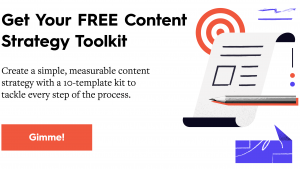Totally new to the SEO game? Start here.
What follows is the simplest, most jargon-free explanation of search engine optimization.
Step #1. How do Search Engines Work?
The primary job of a search engine is to constantly find new web pages and organizing them. That’s pretty much it!
Then when people use search engines, they retrieve and display those pages based roughly on a few major characteristics:
- Relevance: How closely related is this information to what someone’s looking for?
- Authority: Does this page (and entire site) appear to be credible on this topic?
- Popularity: Do other people find this source helpful, and would they recommend it?
Step #2. So What is SEO?
SEO is simply a way of improving your odds of showing up when people look for information related to you.
For example, if your site sells hats that look like animals, then you want optimize your site to show up when someone searches for terms like:
- Animal hats
- Hat that looks like a duck
- Bear-shaped hat
- Whatever your business name is
You probably DON’T want your site to come up when somebody searches things like:
- Pink fedora
- Shoes that look like animals
- Formal headwear
It’s absolutely critical to understand how people might be looking for your products or services (i.e. what specific phrasing or topics are they looking for), so that you can determine (a) the popularity of these terms and compare that with (b) how competitive they might be (i.e. the pages and websites already showing up for these topics).
Step #3. The Importance of Pages
Once you know how to properly describe what you do (based on how people might be looking for it), then you want to lead these people to a specific page.
For example, if somebody specifically searches for a hat that looks like a duck, the page they land on should feature your duck hat!
On the other hand, if their search is more general (e.g. “Animal hats”) then you can show them a page that has an overview of all of your hats.
The key objective of SEO is to give people easy access to what they want to see (and having many different landing pages make this possible).
Step #4. Optimize!
The next big step is optimizing the website itself. Your site needs to be easy for search engines (and people!) to understand.
That means being as descriptive as possible with your content on each page, creating a better user experience by making the website load quickly, and making your website easy to navigate with little-to-no “dead ends” when people are clicking around.
SEO is an eclectic combination of tactics, tweaks, and best practices. Some of these are pretty quick and easy to implement while some can take a long time.
The best advice – regardless of whether you’re trying to do it yourself or hire someone else – is to become as knowledgeable as possible and stay up-to-date. Because what worked just a few years ago, might get you in trouble today.
Step #5. Think Big Picture
Despite the popularity and effectiveness of SEO, it’s important to keep perspective.
For example, how are your optimization efforts and tactics going to align with your overall marketing strategy? Because SEO is just one part of a complete digital marketing strategy.
So it’s critical that you understand your buyer’s journey (how they’re going to find and buy from you), analyze your entire website’s strengths and weaknesses, and ensure that enough visitors are turning into leads.
The biggest SEO mistakes occur when you treat it as some separate “thing”, and don’t integrate it with the rest of your marketing plan.
(161)
Report Post




